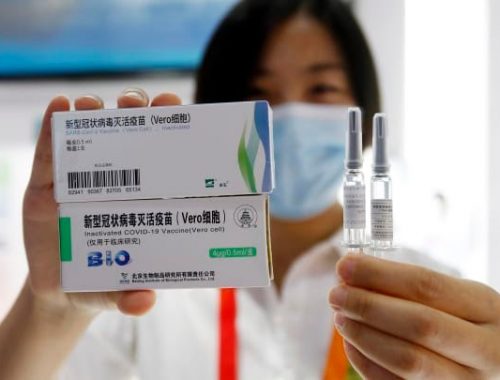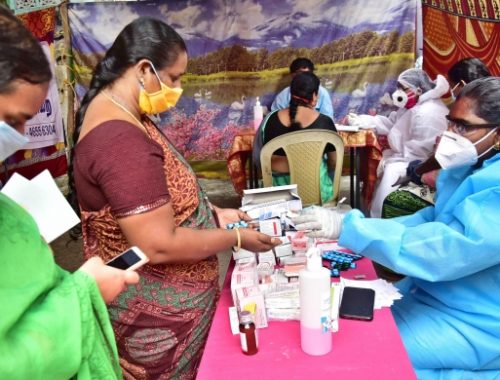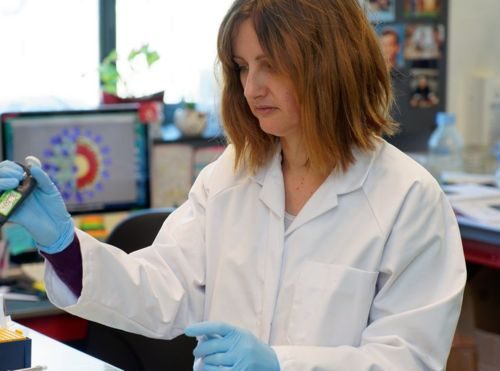Scientists and medical experts continue to find a vaccine to stop the coronavirus invasion.
But scientists from John Hopkins Bloomberg School of Public Health have found that the death rate of COVID-19 is six times lower in countries that use the BCG injection.
Researchers at the Murdoch Children’s Research Institute in Melbourne believe that a booster – or even a first dose of BCG – could in fact help protect against coronavirus by turbo-charging the immune system.
Trials in four countries are already underway with 4,000 Australian hospital workers are volunteering for a six-month trial, while a team in the Netherlands are testing it on 1,000 healthcare workers.
Boston in Massachusetts are in talks over their own trial, while Exeter University here in the UK are also considering it.
Scientists from various parts of the world have claimed developments of vaccines to withstand the pandemic, but not a single one is available for common people yet. As researchers scramble to find new drugs and vaccines for Covid-19, a vaccine that is more than a century old has appears as silver line amids clouds of fear and desperation. The Bacillus Calmette-Guerin (BCG) vaccine which was first developed to fight off tuberculosis – is being studied in clinical trials around the world as a way to fight the novel coronavirus.
According to Dr. Denise Faustman, director of immunobiology at Massachusetts General Hospital and associate professor of medicine at Harvard Medical School, BCG is effecive despite its assured efficacy.Tuberculosis and Covid-19 infection are two very different diseases – TB is caused by a type of bacteria while Covid-19 is caused by a virus, for starters. But the BCG vaccine might help people build immune responses to things other than TB, causing ‘off-target effects’.
In other words, in clinical trial format, people started picking up positive benefit from getting the vaccine that had nothing to do with tuberculosis,Dr. Faustman says. She has studied how the BCG vaccine affects people with Type 1 diabetes for many years. She is interested in how its off-target effects change the immune system in beneficial ways for people with autoimmune diseases such as Type 1 diabetes. Though the exact mechanism for these off-target effects of the BCG vaccine isn’t clear, it’s believed that the vaccine can cause a nonspecific boost of the immune response.
There is currently no vaccine or treatments approved by the US Food and Drug Administration for the novel coronavirus. While hopeful that the BCG vaccine will prove to be effective against Covid-19 – as with any of the treatments and vaccines under development – Dr. William Schaffner, an infectious disease specialist at the Vanderbilt University School of Medicine, admits the concept is a bit unconventional.
“I think BCG vaccine is a bit of the equivalent of a Hail Mary pass,” said Schaffner. “It’s such an outside-the-box concept that one would like to be optimistic, but we’ll have to wait and see.” Several countries around the world are beginning human clinical trials to evaluate the BCG vaccine’s efficacy, such as Australia and the Netherlands.
Faustman and her colleagues are preparing for trials in Boston, which are currently under a multistep review process. Once approved, she and her team members hope to enroll about 4,000 health care workers into the trial. The vaccine has been available for more than 100 years and has proved to be relatively safe, Faustman said.
“BCG is heralded by the World Health Organization as the safest vaccine ever developed in the world,” she said. “Greater than 3 billion people have gotten it.” While several countries, including the United States, do not regularly administer the BCG vaccine, it is still used widely in developing countries.
Researchers have attempted to look at whether these countries with regular BCG vaccine administration have lower rates of Covid-19-related mortality. One study by researchers in New York found an association between universal BCG vaccination policies in countries and reduced morbidity and mortality for Covid-19.
But why has China had high morbidity and mortality with Covid-19 despite a universal BCG policy since the 1950s? The study said China had a weakened policy during the Cultural Revolution in the 1960s and ’70s, which might have created “a pool of potential hosts that would be affected by and spread COVID-19.”
Also, China has not had as steep of a rise in its curve compared to some other countries without universal policies, such as Italy, Spain and the US. She also added that different strains of the BCG vaccine might have different rates of efficacy.
by Chandan Kumar Duarah, He is a Science Journalist based in Guwahati, India
________________________________________
What is BCG vaccine?
BCG vaccine – or Bacillus Calmette-Guerin to give its full name – is a jab given to prevent people from catching tuberculosis (TB).
It is often given to children between the ages of 10 and 14, but babies and those under the age of 35 can also receive one if they are most at risk.
For young children, it is recommended they receive the injection if they are in areas where the risk of TB is higher, or if they have a parent or grandparent born in a country where the rate is considered high.
Evidence has shown that the BCG vaccine does not work for those over 35.
Why didn’t everyone in the UK have BCG vaccine?
BCG vaccinations took place from 1953, with children between the ages of 10 and 14 receiving one.
But this was stopped in July 2005 as it was no longer cost effective for the number of cases that rose.
In 1953, 94 children were immunised to prevent a case of TB, where as in 1988, 12,000 children would be vaccinated to prevent a single case.
The injection is still available on the NHS for those most at risk – but no longer as a regular jab for all children.




